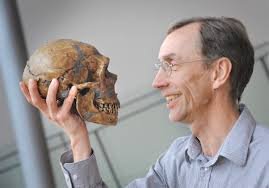"Scientists Unlock Secrets of the Human Genome: What It Means for Medicine"

Recent advancements in genetic research have brought scientists closer than ever to unlocking the full potential of the human genome, offering unprecedented opportunities for advancing medicine. The human genome, which consists of approximately 3 billion DNA base pairs, carries the genetic instructions for building and maintaining the human body. By mapping and understanding the intricate details of this genetic code, researchers are discovering new ways to treat, prevent, and even cure a range of diseases that were once considered untreatable.
The Human Genome Project, completed in 2003, marked the first major milestone in decoding the human genome, but the real breakthroughs have come in the years since. Scientists have continued to refine and expand our understanding of the genome, revealing crucial insights into how our genetic makeup influences health and disease. These discoveries have opened the door to personalized medicine, a rapidly growing field that tailors medical treatments to an individual's unique genetic profile.
One of the most significant implications of unlocking the secrets of the human genome is the potential to identify genetic mutations that cause or contribute to diseases. Many common conditions, such as heart disease, diabetes, and various forms of cancer, have a genetic component. By understanding the specific genes involved, scientists can develop targeted therapies that address the root cause of these diseases, rather than just treating the symptoms. This precision medicine approach offers the possibility of more effective treatments with fewer side effects, as therapies can be designed to specifically interact with the genes and proteins responsible for the disease.
Additionally, advances in genome sequencing technology have made it faster and more affordable to map an individual's genetic code. This has led to the emergence of genetic testing as a powerful tool for early diagnosis and risk assessment. For instance, individuals with a family history of certain genetic disorders can undergo genetic testing to determine if they carry mutations that may predispose them to those conditions. Early detection allows for earlier interventions, potentially preventing or delaying the onset of diseases.
Gene editing technologies, such as CRISPR-Cas9, have also emerged as a promising avenue for treating genetic diseases. CRISPR allows scientists to edit specific genes with remarkable precision, offering the potential to correct genetic defects that cause diseases like sickle cell anemia, cystic fibrosis, and muscular dystrophy. While still in the experimental stages, these technologies hold the promise of curing genetic disorders by directly repairing or replacing faulty genes.
Moreover, the insights gained from the human genome have implications beyond individual health. By understanding how genes interact with environmental factors, researchers are uncovering new ways to prevent diseases before they develop. For example, knowledge of genetic predispositions to certain conditions could lead to lifestyle recommendations tailored to an individual’s genetic makeup, helping people avoid risk factors and improve overall health.